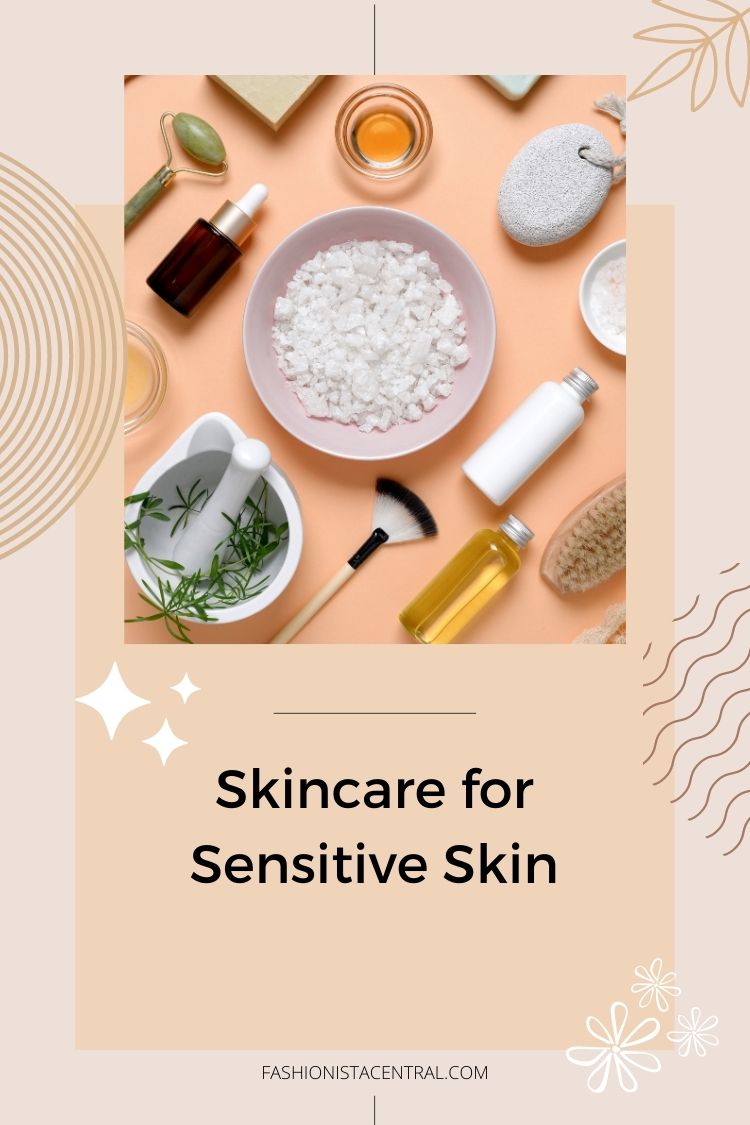
Are you tired of dealing with pesky breakouts that just won’t seem to go away? Do you find that your acne flares up during times of stress or anxiety? If so, you’re not alone. Many people experience stress-related acne, also known as stress breakouts, which can be frustrating and difficult to manage.
In this blog post, we’ll explore the link between your mind and your skin and how stress can impact your skin health. We’ll also provide tips and strategies for managing stress breakouts and achieving clearer, healthier skin.
Stress breakouts are a type of acne that occurs when stress hormones, such as cortisol, trigger an increase in oil production in the skin. This excess oil can clog pores, leading to inflammation and breakouts. Stress breakouts can appear as whiteheads, blackheads, or red, inflamed pimples.
1. Why Stress Breakouts Occur
Stress breakouts occur when the body’s stress response is activated, causing a cascade of hormonal changes in the body. These changes can lead to increased sebum production, inflammation, and the formation of acne. Stress breakouts can also be triggered by other factors, such as poor diet, lack of sleep, and hormonal fluctuations.
Importance of Addressing Stress-Related Acne
Stress-related acne can have a significant impact on your self-esteem and quality of life. It can be frustrating and embarrassing to deal with persistent breakouts, and it can also lead to scarring and hyperpigmentation if left untreated. Additionally, chronic stress can have a negative impact on your overall health and well-being, making it important to address stress and its effects on your skin.
By understanding the causes and triggers of stress breakouts, you can take steps to manage your stress levels and improve your skin health. In the following sections, we’ll explore strategies for managing stress and preventing breakouts.
Also Read: Sensitive Skin: Top 10 Skincare and Beauty Products for a Calm and Glowing Complexion
2. The Connection between Stress and Skin Health
Understanding the connection between your mind and your skin is essential for managing stress breakouts. Stress can have a significant impact on your body, including your skin health. In this section, we’ll explore the mind-skin connection and how stress affects your skin.
The mind-skin connection refers to the relationship between your emotional and psychological well-being and your skin health. Research has shown that the brain and skin are connected through various pathways, including the nervous, endocrine, and immune systems. This means that emotions, thoughts, and behaviors can impact the skin’s appearance and function.
How Stress Affects the Body
Stress activates the body’s “fight or flight” response, which triggers a release of stress hormones, including cortisol and adrenaline. These hormones can lead to a range of physical and emotional symptoms, including increased heart rate, elevated blood pressure, and feelings of anxiety or tension.
The Impact of Stress on Skin Health
Stress can impact the skin in several ways. One of the most significant effects of stress on the skin is an increase in oil production. Stress hormones can stimulate the sebaceous glands in the skin to produce more oil, which can clog pores and lead to breakouts.
Stress can also lead to inflammation in the skin, which can exacerbate existing skin conditions, such as acne, eczema, or psoriasis. Inflammation can also contribute to premature aging, as it can break down collagen and elastin fibers in the skin.
In addition to these physical effects, stress can also impact your skin health through behaviors such as poor sleep, unhealthy eating habits, and neglecting skincare routines.
To manage stress breakouts and improve your skin health, it’s essential to develop healthy coping mechanisms for stress, such as exercise, meditation, or therapy. Additionally, practicing good skincare habits, such as cleansing, exfoliating, and using non-comedogenic products, can help keep breakouts at bay.
Also Read: Expert Tips for a Flawless Skin: The Complete Guide to Skincare and Beauty in Your 20s
3. The Science Behind Stress Breakouts
Stress can wreak havoc on your skin health, but have you ever wondered why? In this section, we’ll delve deeper into the science behind stress breakouts and explore the role of cortisol in the body.
The Role of Cortisol in the Body
Cortisol is a steroid hormone produced by the adrenal glands in response to stress. Its primary function is to help the body cope with stress by regulating blood sugar levels, reducing inflammation, and suppressing the immune system.
How Cortisol Affects the Skin
While cortisol can be beneficial in small doses, chronic stress can cause cortisol levels to remain elevated, leading to negative effects on the body and skin. Cortisol can impact the skin in several ways, including:
- Increased oil production: As mentioned earlier, cortisol can stimulate the sebaceous glands to produce more oil, which can lead to clogged pores and breakouts.
- Reduced collagen production: Cortisol can break down collagen in the skin, leading to premature aging and a loss of skin elasticity.
- Inflammation: Elevated cortisol levels can cause inflammation in the skin, exacerbating existing skin conditions such as acne, eczema, and rosacea.
The Link Between Cortisol and Acne
One study found that individuals with acne had significantly higher levels of cortisol than those without acne. This suggests a link between elevated cortisol levels and the development of acne.
Additionally, cortisol can stimulate the production of androgens, which can further increase oil production and worsen acne.
To manage stress breakouts, it’s essential to find healthy ways to manage stress and reduce cortisol levels in the body. This can include practicing relaxation techniques, such as meditation or yoga, getting enough sleep, and incorporating regular exercise into your routine. Additionally, using skincare products that contain ingredients like salicylic acid or benzoyl peroxide can help to unclog pores and prevent breakouts.
4. Identifying Stress Triggers
Stress is a part of everyday life, but when it becomes chronic, it can negatively impact your physical and mental health. Identifying the sources of stress is the first step in effectively managing it. In this section, we’ll discuss how to identify your personal stress triggers and their impact on your skin.
Common causes of stress Stress can be caused by a wide variety of factors, including work, relationships, finances, and health issues. Some common sources of stress include:
- Work-related stress: deadlines, long hours, job insecurity
- Relationship stress: conflict with a partner or family member
- Financial stress: debt, job loss, or unexpected expenses
- Health-related stress: chronic illness, pain, or injury
How to identify your personal stress triggers Everyone experiences stress differently, and what triggers stress for one person may not be a stressor for another. Here are some ways to identify your personal stress triggers:
- Keep a stress diary: note down stressful events, how you felt, and how you responded
- Pay attention to physical symptoms: stress can manifest as headaches, muscle tension, and stomach issues
- Identify patterns: do certain situations consistently cause you stress?
The impact of stress on your skin Stress can have a significant impact on your skin, contributing to the development of stress breakouts, psoriasis, eczema, and other skin conditions. When you experience stress, your body releases hormones like cortisol and adrenaline, which can cause inflammation, redness, and breakouts. Stress can also disrupt the skin’s natural barrier, leading to dehydration and increased sensitivity.
5. Managing Stress for Clearer Skin
Stress is an inevitable part of life, but there are ways to manage it effectively to prevent stress breakouts. Here are some stress management techniques that can help promote clearer skin:
- Practice Mindfulness: Mindfulness practices, such as meditation, deep breathing, and yoga, can help reduce stress and promote relaxation. These practices help you stay present in the moment, reducing the impact of stress on your mind and body.
- Exercise and Physical Activity: Regular exercise can help reduce stress and promote overall well-being. Exercise stimulates the production of endorphins, which are feel-good hormones that can help counteract the effects of stress.
- Get Enough Sleep: Lack of sleep can cause stress and exacerbate stress-related acne. Aim for at least seven to eight hours of sleep per night to help regulate stress levels and promote healthy skin.
- Take Breaks and Practice Self-Care: Taking breaks and practicing self-care activities, such as getting a massage or taking a relaxing bath, can help reduce stress and promote relaxation.
- Eat a Balanced Diet: Eating a balanced diet rich in fruits, vegetables, whole grains, and lean proteins can help reduce inflammation and promote healthy skin. Avoiding processed foods, sugary snacks, and alcohol can also help reduce stress and prevent stress breakouts.
By incorporating these stress management techniques into your daily routine, you can help reduce stress and promote clearer, healthier-looking skin.
6. Skincare Tips for Stress Breakouts
Stress breakouts can be frustrating and difficult to manage, but there are several things you can do to help reduce their occurrence and severity. Taking care of your skin with the right skincare products and routine can help prevent and manage stress-related acne.
Products and ingredients to avoid
- Avoid using harsh or abrasive skincare products that can irritate your skin and worsen breakouts.
- Avoid products with fragrances and essential oils, which can cause irritation and inflammation.
- Avoid using products with high levels of alcohol or other drying ingredients.
Skincare routine for stressed skin
- Cleanse your skin gently and avoid over-washing, which can strip your skin of its natural oils.
- Use a gentle, non-comedogenic moisturizer to hydrate and soothe your skin.
- Incorporate a spot treatment with salicylic acid or benzoyl peroxide to help target acne-prone areas.
- Use sunscreen daily to protect your skin from UV damage, which can worsen acne and inflammation.
Natural remedies for acne-prone skin
- Tea tree oil has antimicrobial properties and can help reduce inflammation and acne-causing bacteria.
- Aloe vera can help soothe and calm inflamed skin.
- Witch hazel has astringent properties that can help reduce excess oil and inflammation.
Remember, everyone’s skin is unique, so it’s important to find what works best for you. It’s always a good idea to consult with a dermatologist to help develop a personalized skincare routine that addresses your specific needs.
Managing stress breakouts requires a multifaceted approach that includes adopting a skincare routine tailored to your skin type and lifestyle. By following these tips, you can help minimize the impact of stress on your skin and achieve clearer, healthier-looking skin.
7. Seeking Professional Help
When it comes to managing stress breakouts, sometimes it’s necessary to seek professional help. While simple lifestyle changes can help reduce the occurrence of stress breakouts, there are times when more significant interventions are needed. This is especially true if your stress breakouts are severe, persistent, or causing you significant distress.
Here are some things to consider when seeking professional help for stress breakouts:
- When to see a dermatologist
If your stress breakouts are severe or are not responding to over-the-counter treatments, it may be time to see a dermatologist. Dermatologists are medical doctors who specialize in the diagnosis and treatment of skin conditions, including acne. They can prescribe medications and other treatments that may be more effective than what’s available over-the-counter.
- Prescription treatments for stress breakouts
Prescription treatments for stress breakouts may include topical and oral medications. Topical medications, such as retinoids, antibiotics, and benzoyl peroxide, are applied directly to the skin and work by killing acne-causing bacteria, reducing inflammation, and preventing clogged pores. Oral medications, such as antibiotics and isotretinoin, are taken by mouth and work by reducing inflammation and oil production.
- The importance of mental health support
While dermatologists can help treat the physical symptoms of stress breakouts, it’s important to also address the underlying cause of the stress. Seeking mental health support, such as therapy or counseling, can be an important part of managing stress breakouts. A mental health professional can help you identify and manage stress triggers, develop coping strategies, and improve your overall mental health and wellbeing.
It’s crucial to prioritize self-care and stress management to maintain healthy and clear skin. By incorporating mindfulness practices, exercise, and other stress management techniques into your daily routine, you can improve your mental and physical health and prevent stress breakouts from affecting your skin.
Remember that stress breakouts are a temporary problem that can be managed with patience and persistence. Be kind to yourself and your skin, and don’t hesitate to seek professional help if you need it. With the right strategies and support, you can achieve healthy, radiant, and stress-free skin.


